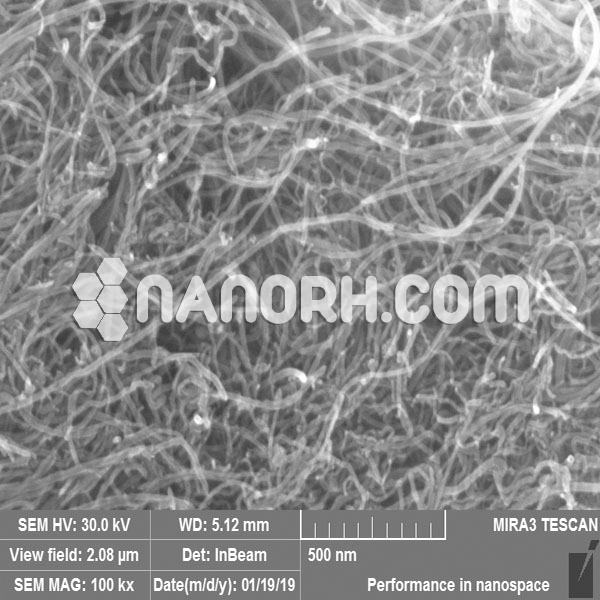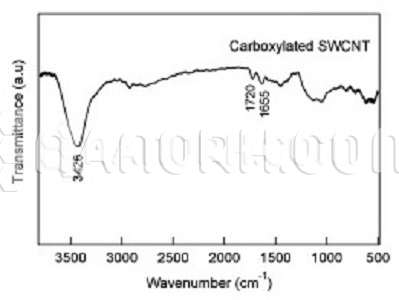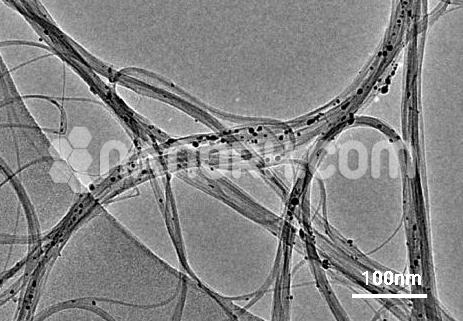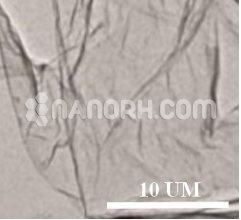| MWCNTs Water Dispersion | |
| Product No | NRE-36024 |
| CAS No. | NA |
| Purity | > 95 wt% |
| Average Diameter | 20-30 nm |
| Average Length | 10-30um (TEM) |
| Special Surface Area(SSA) | > 110 m2/g (BET) |
| Tap Density | 0.28/cm3 |
| True Density | 2.1 g/cm3 |
| Electric Conductivity | > 100 S/cm |
Multi-Walled Carbon Nanotubes (MWNTs, MWCNTs)
MWCNTs Water Dispersion Application:
Potential applications of carbon nanotubes are: (1) additives in polymers; (2) catalysts; (3) electron field emitters for cathode-ray lighting elements; (4) flat panel display; (5) gas-discharge tubes in telecom networks; (6) electromagnetic-wave absorption and shielding; (7) energy conversion; (8) lithium-battery anodes; (9) hydrogen storage; (10) nanotube composites (by filling or coating); (11) nanoprobes for STM, AFM, and EFM tips; (12) nanolithography; (13) nanoelectrodes; (14) drug delivery; (15) sensors; (16) reinforcements in composites; (17) supercapacitor.




